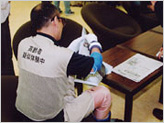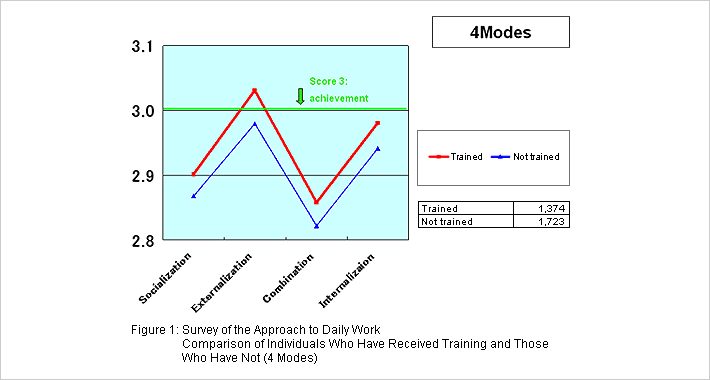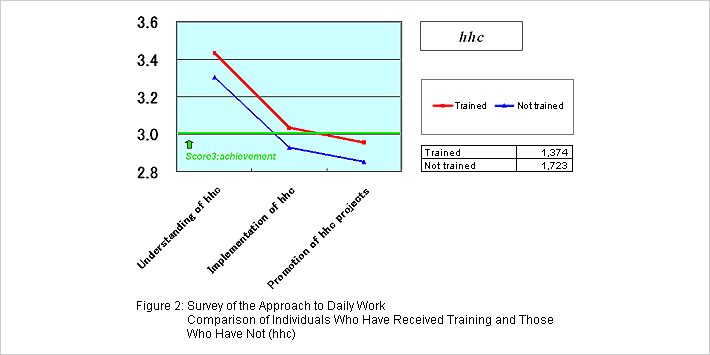December, 2006
The purpose of Knowledge Leader Training is to utilize actual experiences at a nursing home and virtual experience as a senior citizen to understand the various emotions of the patient and reflect that understanding in daily work. The training was begun in December 2004 for all employees, with the number of participants have been over 2,000. In the training, participants are assigned to a nursing home and spend time associating with like their grandparents, in an effort to understand their feelings, and what it means to become older, as well as gain a realization of the difficulties faced by the elderly who live alone.
Every two years, Eisai conducts a “Survey of the Approach to Daily Work” targeting all employees, to determine the status of their daily work and the organizations to which they belong, as well as the level of employee satisfaction. The results of the fifth such survey conducted in February 2006 clearly showed the successful results of this training. Figure 1 shows the 4 Modes* that are used to assess organizational activities that are geared toward achieving the corporate philosophy. There is a clear difference between those who have received the training and those who have not. Those who have received the training are higher in each of the 4 Modes, indicating that organizational activities geared toward achieving the corporate philosophy have been vitalized.


In addition, Figure 2 shows the assessment of hhc activities. Participants' consciousness has greatly improved in the understanding and implementation of hhc, as well as the promotion of hhc projects, etc. These results indicate a level of success even greater than we expected from the training report.
We intend to implement this training not only in Japan, but in Asia, then Europe and the United States as well, to promote the global expansion of hhc activities through on-site this experiential treining

- *4 Modes: The four-step innovation process of the knowledge-creation theory of Ikujiro Nonaka, Professor Emeritus, Hitotsubashi University.
